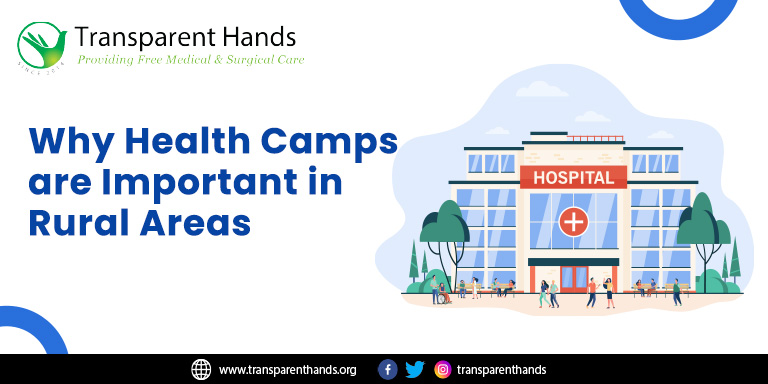Why Are Health Camps Important in Rural Areas?

Overview
Health camps play a critical role in providing medical care and creating awareness about health issues in rural areas. While there are many reasons why health camps in rural areas are a necessity, the lack of access to healthcare facilities is one of the most significant factors.
In rural areas, access to medical facilities and doctors is limited. This is mainly because of a lack of hospitals, clinics, and qualified medical professionals. As a result, people in rural areas often have to travel long distances to reach medical facilities. The cost of transportation and medical care can be prohibitively expensive, which can deter people from seeking treatment. Additionally, a lack of awareness and education about healthcare can further exacerbate the problem, leading to a higher incidence of preventable illnesses and diseases.
To address these issues, health camps have emerged as an effective solution. These camps are typically organized by healthcare organizations, NGOs, or government bodies and are conducted in rural areas to provide medical care and create awareness about healthcare.
The Importance of Health Camps in Rural Areas
1. Accessibility:
Health camps in rural areas are organized to ensure that medical care is accessible to all. By setting up these camps in areas where people do not have access to medical facilities, patients can receive treatment and medical care without having to travel long distances.
2. Cost-effective:
Health camps are typically organized by non-profit organizations or government bodies and are therefore affordable for patients who may not be able to afford medical care in hospitals. They are often free or charge a nominal fee, making them accessible to all.
3. Awareness:
Health camps not only provide medical care but also educate people about healthcare. This helps to create awareness and prevent diseases from spreading. Additionally, these camps can also help identify health issues in a community and create targeted interventions to address them.
4. Preventive healthcare:
Health camps in rural areas focus on preventive healthcare, which means that they identify and address health issues before they become severe. This approach can help reduce the incidence of diseases and prevent the spread of illnesses in a community.
Health Camp Objectives
The objectives of health camps are as follows:
- To provide medical care and treatment to people in rural areas.
- To create awareness and educate people about healthcare.
- To identify and address health issues in a community.
- To promote preventive healthcare and reduce the incidence of diseases.
- To provide access to medical care and treatment to people who cannot afford it.
Health Camp Benefits
The benefits of health camps are numerous:
- Improved health outcomes: Health camps can help improve health outcomes in rural areas by providing medical care and treatment.
- Cost-effective: Health camps are often free or charge a nominal fee, making them accessible to all.
- Awareness: Health camps can help create awareness about healthcare and prevent diseases from spreading.
- Targeted interventions: Health camps can identify health issues in a community and create targeted interventions to address them.
- Preventive healthcare: Health camps focus on preventive healthcare, which means that they identify and address health issues before they become severe.
In conclusion, health camps in rural areas are critical to providing medical care, creating awareness about healthcare, and promoting preventive healthcare. They are an effective solution to address the lack of access to healthcare facilities and the high incidence of preventable illnesses and diseases in rural areas. Organizing health camps, healthcare organizations, NGOs, and government bodies can make a significant impact on the health outcomes of people living in rural areas.










Leave a Reply